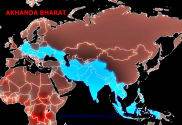BRUSSELS (AP) — Despite the warm welcome for millions of Ukraine refugees on European Union soil since the Russian invasion, EU officials said Tuesday, June 6, 2023 that there are some fears of wavering support caused by a bad economy hitting poor families especially and the creeping influence of Russian propaganda.
EU Home Affairs Commissioner Ylva Johansson stressed that support for the 4 million Ukraine refugees being cared for in the bloc is steadfast, but a special report said “what we might call ‘solidarity fatigue’ is beginning to set in in some member states.”
“The cost of living crisis has hit low- and medium-income families in host societies and created a context in which Russian propaganda could be more successful,” special EU adviser on Ukraine Lodewijk Asscher said in the report.
Russian President Vladimir Putin “has a huge interest in influencing public opinion on displaced persons from Ukraine. The discourse on migration refugees can be weaponized to sow division within the EU,” the Dutch politician said, adding that some of the 27 EU member states have already reported more disinformation campaigns targeting the issue.
In contrast to the hesitancy to host migrants coming from across the Mediterranean and from war zones in Africa and Asia, the welcome given to Ukraine refugees has been warm since the February 2022 start of the war, when millions began fleeing to neighboring nations such as Poland, Slovakia, Romania and further afield into Germany.
Johansson said the largest movement of refugees in Europe since World War II sent 16 million across the continent, after which about 11 million went back home and 1 million went further afield to places such as Canada and Britain.
Within the EU, a Temporary Protection Directive was issued to make sure Ukrainians could take shelter and receive help with as few strings as possible. Member states have even started building temporary Ukraine “villages” to help the refugees integrate better in society.
But the report warned that refugees who are pulled both ways between their refuge and their embattled homes suffer from trauma and loss, creating a “waiting dilemma.”
It makes “it difficult to decide to start learning a new language, to embark on more serious training or education programs, or to integrate children into the education system of the host country,” Asscher said, adding that companies also hesitate to invest in them since they might be gone at short notice.
Overall, Asscher said, “solidarity is alive and kicking. But there is fatigue, especially amongst the more vulnerable refugees as well as the most vulnerable in receiving societies.”




